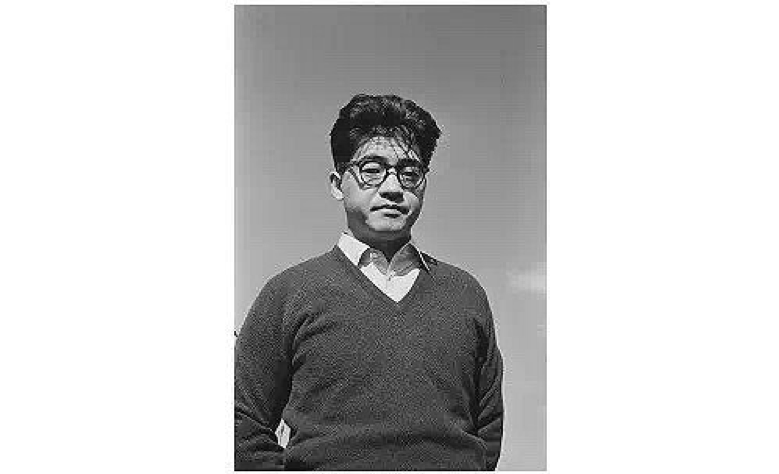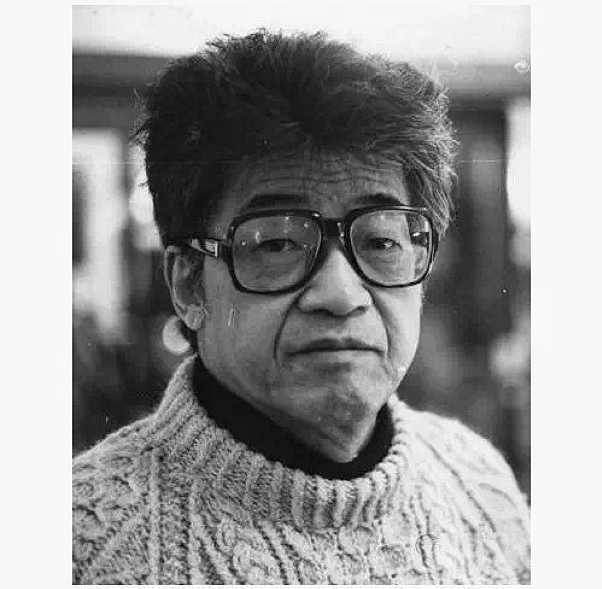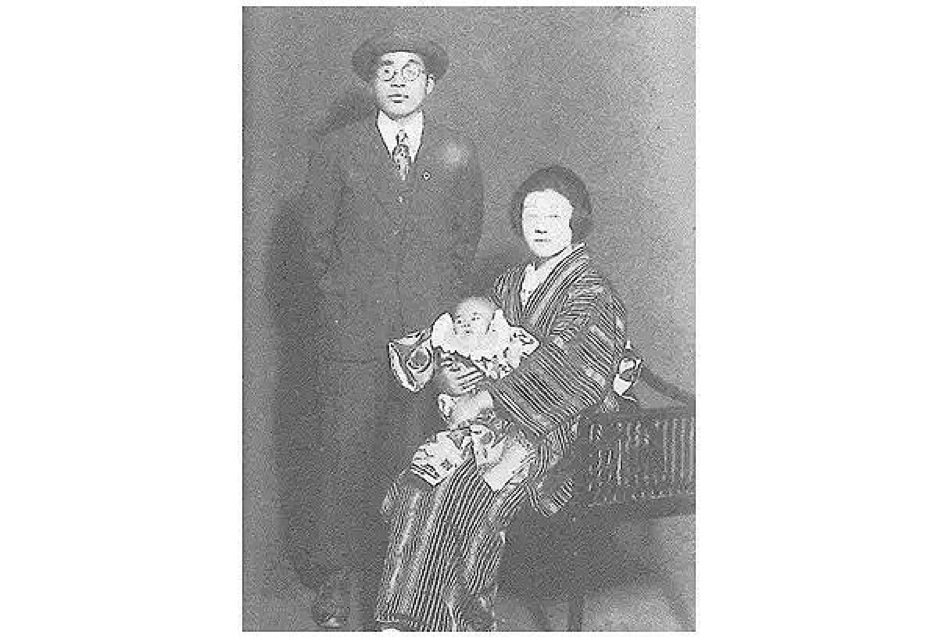Kobo Abe (birth name: Kimifusa Abe) was born on March 7, 1924 in Takinogawa, Tokyo. Soon after his birth, Abe moved to Houten–a city in Manchuria–and spent his early life there. Abe temporarily returned to Japan to pursue his education, but he returned to Manchuria before the end of the war. It was not until October of 1946 that he made his official return to Japan. In 1948, Abe graduated from the University of Tokyo School of Medicine.
Around the same time, Abe joined the Night Society, an art movement led by Kiyoteru Hanada and Taro Okamoto. He also began his writing career as an author for “Modern Literature” (近代文学) and published his first work, “The Road Sign At the End of the Street” (終りし道の標べに, 1948). His initial works were existentialist, but by 1951, his style shifted to surrealism and the avant-garde. These works included “The Red Cocoon” (赤い繭), which won the Post-war Literature Award, and “The Wall” (壁), which won the Akutagawa Prize. He later experimented with documentary literature, science fiction, and anti-realistic literature. In 1957, Kobo Abe published “The Beasts Head for Home” (けものたちは故郷をめざす), a book based on his own experiences as he returned to Japan after the war.
In 1962, Abe published “The Woman in the Dunes” (砂の女). This book was awarded the Yomiuri Literature Award and was recognized internationally through the Best Foreign Literature Award in France. Many of his works from this period are characterized by the exploration of contemporary society through dialectics. Beginning in 1973, Abe supervised the “Abe Kobo Studio,” an acting group. Also around this time, he published essay collections such as “Thoughts on the Desert” (砂漠の思想, 1965), “The Frontier Within” (内なる辺境, 1971), and “Pathway to the City” (都市への回路, 1980). From the 1980s to his final project, “The Flying Man” (飛ぶ男, 1994), Abe’s writing continued to highlight the problems in modern society with an increasing sense of urgency. He became an honorary member of the The American Academy of Arts and Sciences in 1992.
Kobo Abe passed away in 1993 from acute heart failure.
For further information, see:
http://repository.tufs.ac.jp/bitstream/10108/93291/1/isre023005.pdf
https://kotobank.jp/word/%E5%AE%89%E9%83%A8%E5%85%AC%E6%88%BF-26947
https://bijutsutecho.com/artwiki/28
https://www.shinchosha.co.jp/writer/649/
Bibliography
Examples of Writing
Image Gallery






